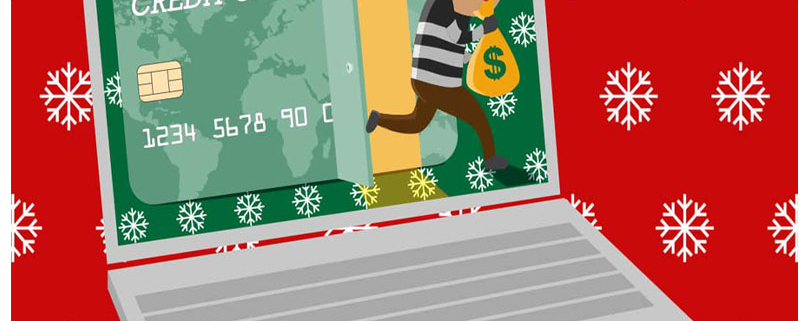Holiday Season Brings Holiday Cyber Attacks
With the holidays quickly approaching, it’s hard not to be excited. The holidays are the peak season for hackers and cyber-attacks. They wait all year, scheming up ways to create their own holiday cheer. While customers are shopping for the best deals, hackers are looking for the opportunity to strike your business with malware, including ransomware and phishing attacks.
If a hacker can hit a large business, what stops them from hitting a smaller one? Small companies are the #1 victim of cyber-attacks and phishing attempts in the world. This is because small businesses usually don’t have the resources to properly secure their data. Another reason is due to small businesses not thinking they would be the target of cyber threats because of their small size. It is crucial to have an IT partner that can provide cost-effective and sound security advice.
What Can You Do To Prevent Holiday Cyber Attacks?
Do you process credit cards or take credit card payments?
PLEASE make sure you follow PCI-DSS (Payment Card Industry Data Security Standards) guidelines to ensure your business maintains a secure environment and protects your customer’s credit card information and personal data. PCI-DSS puts the responsibility on the business owners to protect customer credit card information. Although it is not a law, PCI-DSS guidelines were created and put in place to protect your business and your customers.
Here at Data-Tech, one of the Largest MSP’s in Tampa Bay, we suggest that you invest in a Next-Generation Firewall that will expose hidden risks, stop unknown threats, and isolate compromised systems to prevent spreading.
It is important to update your systems regularly to keep them free of malicious activity. We also suggest that you remove any unused software as an added security measure. For example, that Windows 7 machine that you are using is no longer being updated with security patches as of January 2020. This means that your Windows 7 will not be updated with the latest security patches that help keep your computer and your data safe. It is time for an upgrade. In addition, routinely scan your website for weak entry points to ensure cybercriminals have no access to your website.
Remove any sensitive data that is non-essential to running your business from your computer. This does not mean that you are deleting sensitive information, just storing it off of your computer and offline. Hackers can’t steal information that you don’t have on your computer or in the cloud.
Reassure visitors that their personal and financial information is safe and secure by displaying a security trust badge on your website. A URL that begins with HTTPS and displays a padlock in front of the link tells your visitors that it is safe. It also helps with your Search Engine Optimization (SEO). Leading search engines, like Google, have started to push listings that are not HTTPS secured farther down on the results page in an effort to keep their users safe and happy.
Be aware of any suspicious activity not only in your business but also in your personal life.
Follow These Three Tips For Safe Holiday Shopping:
Be Alert for Phishing Emails. Cybercriminals love to send phishing emails because it’s the most effective tactic to steal your data. Hackers design emails to look like those sent from your favorite stores or brands with the hope that you will click the link.
If you click that link, one of two things could happen; either that link will start to download something malicious like a virus onto your computer, or the link will take you to a fake landing page that attempts to collect your login credentials or credit card information.
If you receive an email that looks suspicious, check the “from” email address to ensure its legitimacy. Another option is to hover over the URL in the body of the email before clicking to see if it is real or fake. Cyber Attackers will create a fake link to put within the email and Hyperlink it with the malicious landing page’s URL to make you think you are going to a website you have visited many times before.
Avoid Suspicious-Looking Websites: Hackers know that bargain hunters are looking for the best deals; therefore, they sometimes design fake websites that attract customers with enticing deals, hoping they can collect their credit card information.
Avoid Shopping on Free Wi-Fi: Places like restaurants, airports, and hotels are the perfect place for a hacker to carry out a cyber-attack. If free wi-fi is your only option, the first thing you should do is connect to a VPN. A VPN is a virtual private network that encrypts the data, or in other words, scrambles the data that comes in and out of your device into an unreadable language, restricting hackers from stealing and reading the information you input online.
Flash deals come and go, so it might be tempting to jump on your phone using public WiFi to take advantage of that deal ASAP. Especially if you are traveling for the holiday season. How do you know the Free Wi-Fi is legitimate and is protecting your data while being transmitted?




